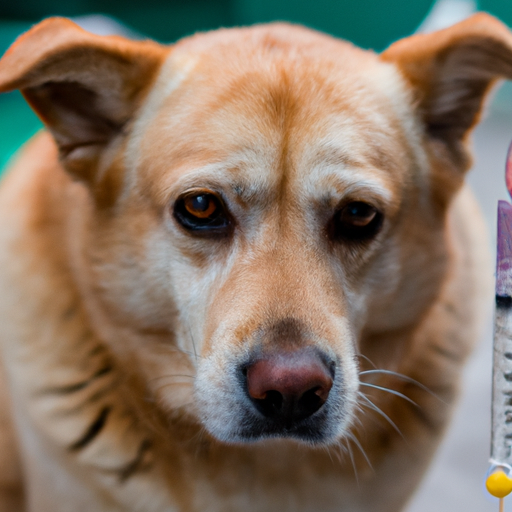Tetanus, often referred to as lockjaw, is a serious bacterial infection that targets a dog’s nervous system. This disease, caused by the bacterium Clostridium tetani, can lead to severe complications and even death if not promptly treated. Understanding what tetanus is, how it affects your furry friend, and what you can do to prevent it is crucial for every dog owner.
- Table of Contents
- What is Tetanus?
- How is Tetanus Transmitted?
- Symptoms of Tetanus in Dogs
- Diagnosis and Treatment
- Prevention of Tetanus
-
Frequently Asked Questions
-
Key Takeaways
- Tetanus is a severe bacterial infection caused by Clostridium tetani.
- The disease is commonly transmitted through wounds or punctures in the skin.
- The symptoms can range from muscle stiffness to difficulty swallowing.
- Diagnosis is often based on symptoms, and treatment includes antibiotics and wound care.
- Vaccination is the most effective way to prevent tetanus in dogs.
What is Tetanus?
Tetanus is a bacterial infection caused by the clostridium tetani bacterium. This bacterium produces a toxin that affects the dog’s central nervous system, causing a variety of neurological symptoms. Tetanus is a global problem, affecting dogs in every part of the world. In the United States, it is more common in the Midwest and the Northeast, regions where the bacterium is more prevalent in the environment [^1^].
How is Tetanus Transmitted?
Tetanus bacteria are commonly found in soil, dust, and the feces of various animals. The bacteria can remain dormant in the environment for years, only becoming active when they enter a dog’s body through a wound or puncture. This could be anything from a minor scrape to a surgical incision. Once inside, the bacteria begin to multiply and release their potent neurotoxin [^2^].
Symptoms of Tetanus in Dogs
Symptoms of tetanus can vary depending on the severity of the infection and the area of the body affected. Common symptoms include:
- Muscle stiffness or spasms
- Difficulty swallowing
- Fever
- Sensitivity to touch and sound
- An erect tail
- The “sawhorse” stance, where the dog stands stiffly with its legs spread wide.
If you notice any of these symptoms, it’s crucial to get your dog to a vet as soon as possible. Delaying treatment can lead to serious complications, including paralysis and death.
Diagnosis and Treatment
Diagnosis of tetanus in dogs is usually based on a combination of clinical signs and a history of a recent wound. Because the bacteria are often present in the environment, a positive culture does not always confirm a diagnosis. In some cases, your vet may use a tetanus antitoxin to help confirm the diagnosis.
Treatment of tetanus includes administering antibiotics to kill the bacteria, cleaning and debriding the wound to remove any remaining bacteria, and providing supportive care to help manage symptoms. In severe cases, dogs may need to be hospitalized and placed on a ventilator.
Prevention of Tetanus
The most effective way to prevent tetanus in dogs is through vaccination. The tetanus vaccine is not a core vaccine for dogs, meaning it is not part of the standard set of vaccines dogs receive. However, it can be given to dogs at high risk of contracting the infection.
Regular check-ups and prompt treatment of wounds can also help prevent tetanus. Always clean and monitor your dog’s wounds, no matter how small they may seem. If you notice any signs of infection, seek veterinary care immediately.
Frequently Asked Questions
1. Can humans get tetanus from dogs?
No, humans cannot get tetanus from dogs. Tetanus is not a zoonotic disease, meaning it cannot be transmitted from animals to humans.
2. How common is tetanus in dogs?
Tetanus is relatively rare in dogs, especially compared to humans. This is likely due to dogs’ higher resistance to the tetanus toxin and their regular exposure to the bacteria, which may lead to a natural immunity.
3. Can tetanus in dogs be cured?
Yes, if caught early and treated aggressively, tetanus in dogs can be cured. However, the disease can be fatal if left untreated.
[^1^]: Merck Veterinary Manual – Tetanus in Dogs
[^2^]: American Kennel Club – Tetanus in Dogs
Relevant Internal Links
For more information on dog health, check out these articles on OneTopDog:



